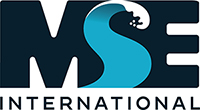Marine Sout East White Paper on Market Opportunities for Clean Marine Fuels
Posted 2017-03-23 12:06:11 by Admin
 Tightening regulations on maritime emissions are driving a transition towards cleaner fuels, which in turn is causing volatility in fuel prices. There is growing interest in fuels which could address these challenges, but equally a lack of certainty about how such fuels could be used in practice.
Tightening regulations on maritime emissions are driving a transition towards cleaner fuels, which in turn is causing volatility in fuel prices. There is growing interest in fuels which could address these challenges, but equally a lack of certainty about how such fuels could be used in practice.Vessel operators are under increasing pressure to adopt cleaner fuels. The International Maritime Organisation (IMO) limit for Sulphur content in all marine fuels, will reduce from 3.5% to 0.5% in January 2020. Additionally, a tighter Sulphur limit of 0.1% applies within designated Emission Control Areas (ECA) including the North Sea and European ports; and regulations to limit marine NOx emissions are also starting to bite.
The new legislation is having a significant and increasing impact on vessel operator costs as limits tighten. Solutions such as switching to low-sulphur fuel, the use of exhaust gas scrubbers or engines fitted with additional NOx-reduction systems all carry a price premium.
Novel fuels offering inherently low emissions of both sulphur and NOx will have a vital role to play in meeting the new limits. Waste derived fuels such as Plaxx and glycerol also offer Carbon emissions reduction potential.
If these novel fuels can be produced at costs on a par with conventional low-sulphur fuels they will become a viable alternative. This will be of particular interest for a
substantial number of small and medium sized vessels including tugs, pilot boats, offshore support vessels and ferries.
The Marine South East White Paper, 'Market Opportunities for Clean Marine Fuels, authored by Dr Jonathan Williams CEO of Marine South East, presents some of the fuel options that have been explored and sets out how they could be realistically deployed.
The White Paper can be downloaded via the Clean Marine Fuel Interest Group at no charge.
Please register your interest using the following link: http://groupspaces.com/CleanMarineFuel/join/ to access the file.


